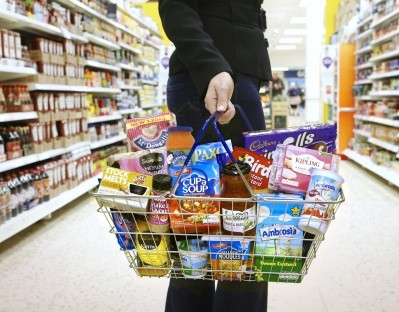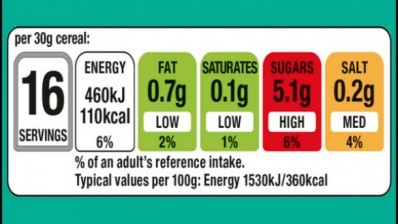Can new labels change consumer behaviour?

Health lobbyists and the Food Standards Agency had long called for some form of labelling that incorporated coloured traffic light labels that could be readily understood by consumers.
What we have got is a system that combines traffic lights with Reference Intakes – a variation on the Guideline Daily Amounts, that many manufacturers preferred – for energy, fat, saturated fat, salt and sugar.
A number of food and drink companies, and the Food and Drink Federation, have fought hard against traffic lights, arguing they were unscientific and would cause an unnecessary extra cost burden on multinational businesses.
Other bodies, such as the Provision Trade Federation, feared traffic lights would demonise whole categories of food, notably cheese; while some reduced fats products, such as mayonnaise, would still fall under the red designation, which wouldn't encourage consumers to choose them and undermine product reformulation.
As a consequence a number of major players, including Unilever, Cadbury (Mondelz), Coca-Cola Enterprises, Kellogg and United Biscuits have not signed up to what is a voluntary labelling approach.
Meanwhile, some campaigners are still calling for legislation to force the industry to go further and tax high-fat, salty and sugary foods.
The big question is: will the new labels translate into transformed consumer behaviour? Because, if they don't, voluntary FoP labelling would have failed.
















